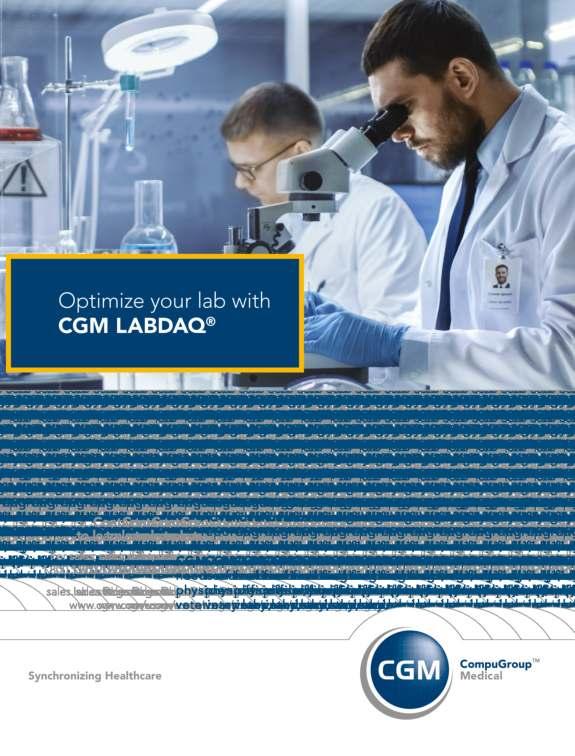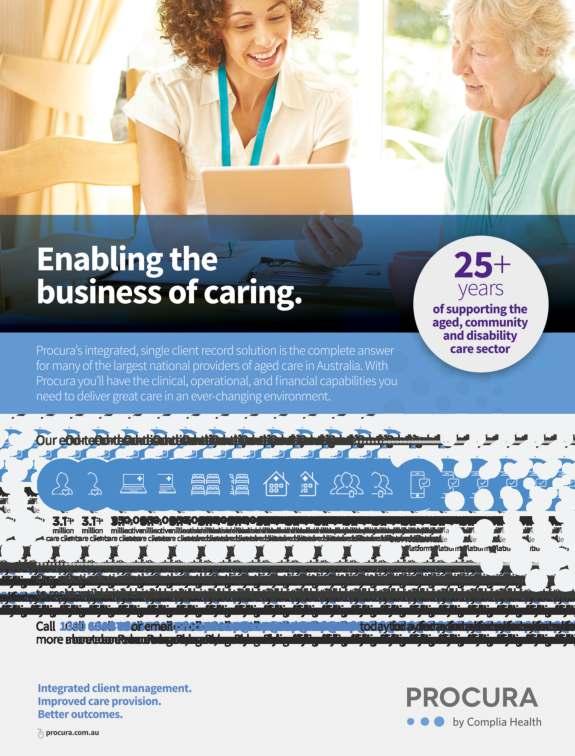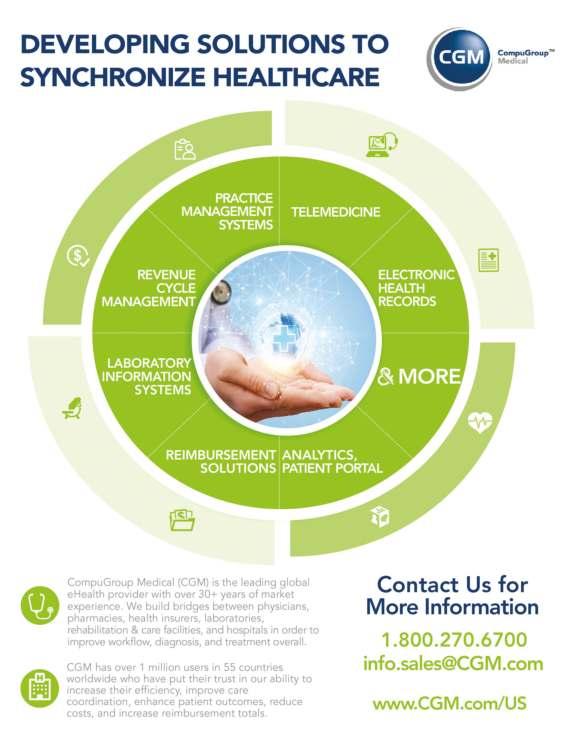







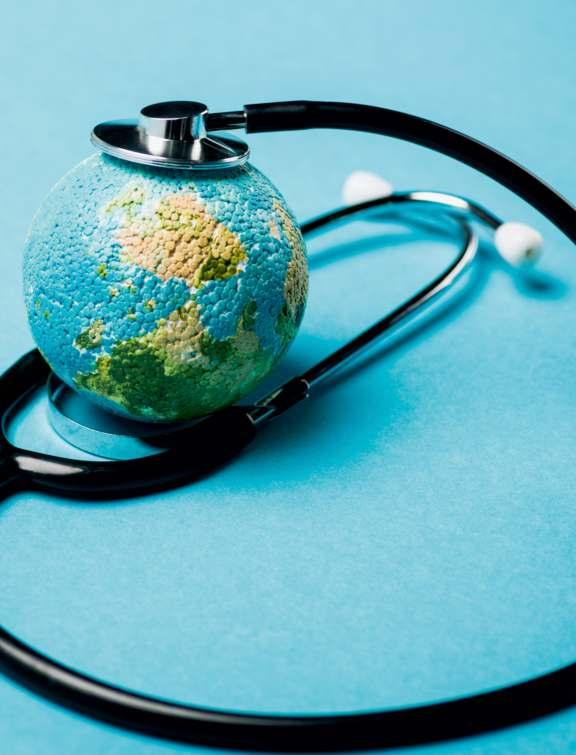


n the midst of the global healthcare crisis, leaders with qualities
I such as passion, compassion, humanity, humility, long-term vision, adaptability, inclusivity, and tenacity emerged as luminaries to be admired by all. With their modern, transformative, flexible, collaborative, and ethical approach, they are redefining healthcare leadership. However, when it came to The 10 Most Trusted Leaders in Healthcare to Watch in 2022 , their trustworthiness remained the trump card.
When it comes to the economics of human affairs, trust is the most valuable currency. Trusted healthcare leaders possess a unique set of skills. They overcome adversity by encouraging their coworkers, patients, peers, and teams. They successfully employ a collaborative approach to gain novel insights into the situation at hand. They then make well-informed decisions that include everyone on their team.
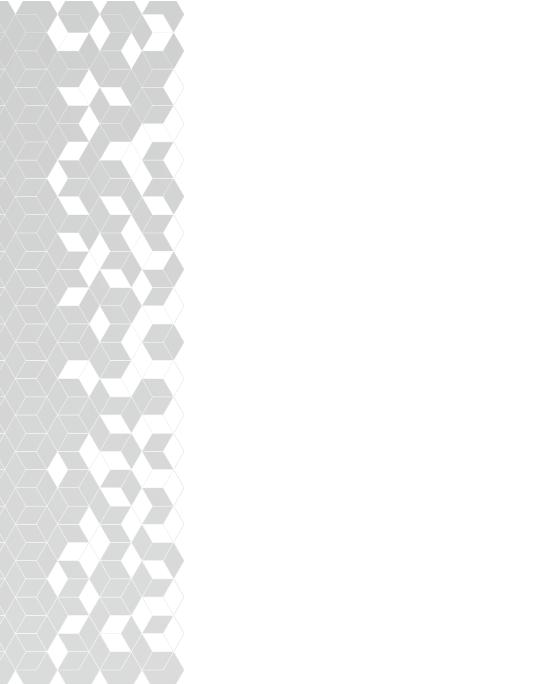
They also include, encourage, and motivate everyone to participate in the organization's mission and ultimate goal. When confronted with difficult situations, they make difficult decisions without bias or preconceived notions, by treating every team member of their unit equally and fairly.
As a result, their approach is ethically sound. Similarly, in conflicting situations, these astute visionaries use their effective conflict management skills to work through differences and reach an amicable conclusion.


CIOLOOK team approached them to understand the changing dynamics of the global healthcare industry, and how they are addressing these changes by embracing novel technologies - telehealth, telemedicine, MedTech, and so on; modern processes, and yet keeping the trusted healthcare professionals' patient-centric approach at the heart of all of their actions–thus, restoring our faith in the global healthcare industry .
We hope that you will find inspirational stories in the following pages to your delight. Read on and enjoy!


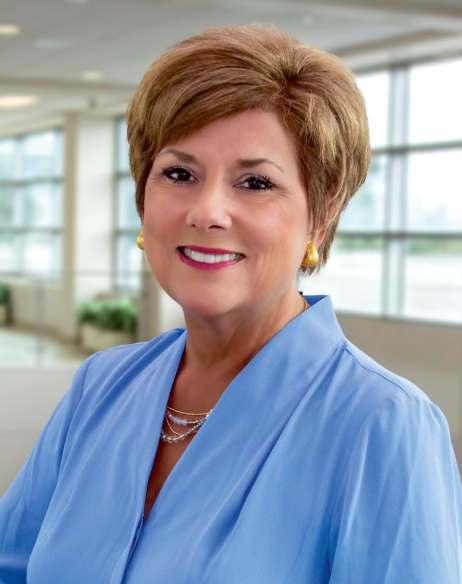



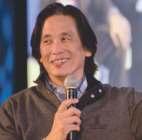
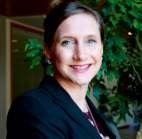


Senior Editor Alan Swann Executive Editors Abhishek Joshi DESIGN Visualizer Dave Bates
Art & Design Director Revati Badkas Associate Designer Sandeep Tikode SALES
FOLLOW US ON www.facebook.com/ciolook www.twitter.com/ciolook
WE ARE ALSO AVAILABLE ON
SME-SMO Research Analyst Eric Smith SEO Executive Ravindra Kadam
Jones Editor-in-Chief sales@ciolook.com
CONTACT US ON
Email info@ciolook.com For Subscription www.ciolook.com
Vice President Operations Kshitij S. Senior Sales Manager Prathamesh Tate Sales Executives Rohit, John TECHNICAL Technical Head Amar Sawant Technical Consultant Victor Collins November, 2022
Copyright © 2022 CIOLOOK, All rights reserved. The content and images used in this magazine should not be reproduced or transmitted in any form or by any means, electronic, mechanical, photocopying, recording or otherwise, without prior permission from CIOLOOK. Reprint rights remain solely with CIOLOOK.
ShellieMI10 has developed a revolutionary new metric to define an organization’s readiness to enter into an AI/Healthcare partnership. MI10 mi10.ai
Phronetik. Inc phronetik.com
Phronetik is a rapidly-growing leader in advancing scientific knowledge by leveraging biotechnology, bioinformatics, research support, and data science to improve diagnosis, treatment, and monitoring.
NRC Health patientwisdom.com
Leslee Torres CEO Leslie Selby VP and Sales Executive Gregory Makoul CTO Mahendra Singh Bhadouria CEOPASCO pascohh.com
Epic epic.com
NRC Health’s patient-focused approach, unmatched market research, and emphasis on consumer preferences are transforming the healthcare experience, creating strong outcomes for patients and entire healthcare systems.
PASCO is known for its grassroots efforts in advocating for individuals experiencing disabilities with legislators locally and federally.
Epic is working at the intersection of healthcare and IT to help the world get well, stay well, and help future generations be healthier.
OMA omaliving.com
Michael Showalter CEO
Health e(fx) healthefx.us
Nader
Mherabi Executive Vice PresidentNYU Langone Hospitals nyulangone.org
Bauer CEO Phyllis Peoples CEOHeartland Dental heartland.com
Terrebonne General Health System tghealthsystem.com
OMA is one of India’s most exclusive luxury lifestyle destinations with its iconic bouquet of décor, art and furniture.
Health e(fx) is a purpose-driven company serving our customers by removing barriers to health reform challenges.
NYU Langone Health is one of the premier academic medical centers.
Heartland Dental provides supported dentists, hygienists, and non-clinical team members with world-class non-clinical administrative support to help them achieve sustainable professional and personal growth.
Terrebonne General Health System has been building a reputation based on quality and is a nationally recognized health care organization that provides state-of-the-art technology and advanced services.
PatTerrebonne General Health System is the largest healthcare resource provider in southeast Louisiana that has taken the lead to deliver medical excellence and innovation to people of this region. The organization is driven by a ‘high tech’ and ‘high touch’ style of healing that offers an expansive range of services that provide hospital care and preventive care.






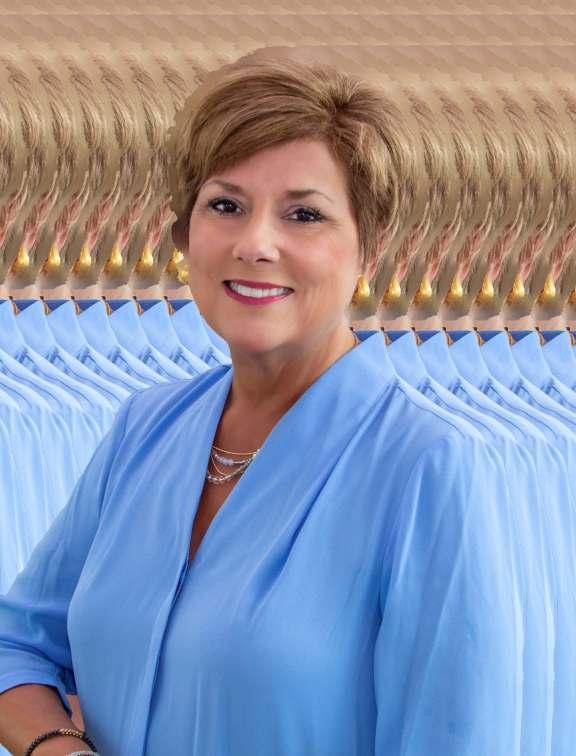








The healthcare industry has undergone a lot of disruption not only due to the pandemic but also because technology has changed how the industry functions fundamentally. As the healthcare industry is experiencing a paradigm shift, healthcare leaders are in an exceptional position to be coherently responsible for an organization that touches and positively affects the lives of millions of people.
However, when it comes to directing a healthcare organization, the CEO is the person who ensures that the organization is working seamlessly while adhering to enhanced clinical quality, patient safety, its financial stability, altogether while ensuring staff satisfaction. Comprehending all these core fundamentals with exemplary expertise, Phyllis Peoples is an eminent leader who has spent years in the trenches of the healthcare industry.
Phyllis has been the CEO of Terrebonne General Health System – a healthcare provider with a tagline, ‘Where medical science meets the art of caring.’ Under her leadership, the organization has received the Women's Choice Award for Outpatient Experience , Restorix Health’s Patient Satisfaction Award for Wound Care and
Hyperbaric Patient Satisfaction , Birth Ready Designation Award by Women’s Health Center and Louisiana Trust Funds for Safety.
Let’s dive in and explore more about this journey of Cohesiveness—
Terrebonne General Health System is the largest healthcare resource provider in southeast Louisiana that has taken the lead in delivering medical excellence and innovation to the people of the region. The organization is driven by a ‘high tech’ and ‘high touch’ style of healing that offers an expansive range of services that provide hospital care and preventive care.
Phyllis shares, “Our highly skilled healthcare team consists of over 1,500 employees and over 450 medical providers that offer 42 various specialties. Our system has been honored with many prestigious awards and accolades for quality, safety, and patient experience on the state, national and international levels. We are comprised of two hospitals and many outpatient clinics, one of our hospitals being a crucial safety-net hospital.”
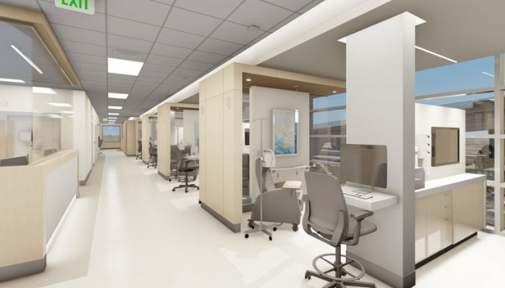
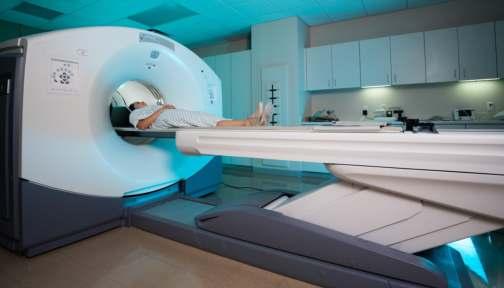
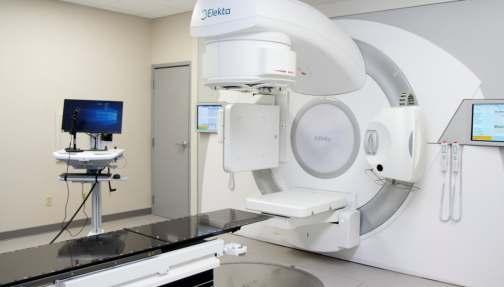
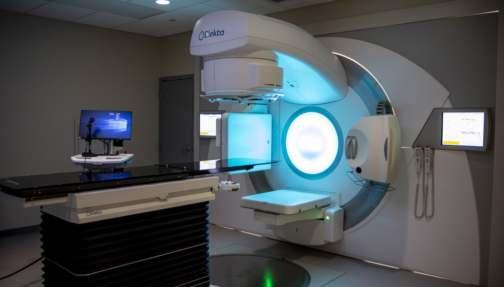
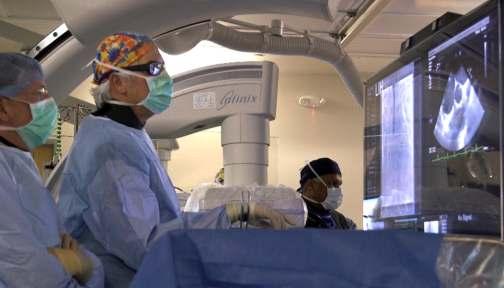
Terrebonne General provides the community with the latest advances in medical technology, including:
•Some of the most advanced cardiac care in the nation through their partnership with the Cardiovascular Institute of the South (CIS) for over 37 years. Being at the forefront of diagnosing and treating coronary and peripheral artery disease. Offering comprehensive treatments such as balloon angioplasty, atherectomy, stent placement, and over 40 innovative clinical research trials.
•Only one in the region to offer advanced electrophysiology to treat an irregular heartbeat and the first in the country to complete valve replacement procedures.
•Its pharmacy is equipped with a new robot –Omnicell XR2, a revolutionary robotic medication inventory system that enhances patient care and safety.
•Its Women’s Health Centre delivers over 1,600 babies annually and has the only Level 3 NICU in the region. It was the first facility in the region to be designated Baby Friendly in 2014.
•Home to Terrebonne General | Mary Bird Perkins Cancer Center, delivering quality cancer care to patients in the region since 2008. The organization provides the full continuum of comprehensive cancer services, from free cancer screenings to various clinical trials, treatment including chemotherapy, radiation therapy, and surgery. Patient navigators and registered dieticians play an active role in patient care, as do exercise programs that aid recovery and survivorship. The Cancer Center is currently undergoing an expansion that will include enlarging the location by more than 15,000 square feet.
•Opened two Multi-Specialty Clinics offering more access and convenience to patients.
• Implemented an intensivist program and hospital program to provide a very coordinated continuum of care for the patient.
According to Phyllis, modern technology has improved communication between providers regarding patient care. With the advancements in electronic medical records, the medical record is portable. Patients now have immediate access to their health information and,
in many cases, can be accessed across institutions . “We are on Epic, a widely used EMR, therefore making patient information available across their continuum of care,” she shares.
Access to patient care has also been widely improved. Telemedicine is available for those patients who may not be physically able to get to a doctor’s office, allowing the patient to stay in their home and be observed by a provider. In addition, telemedicine is available between institutions when sub-specialties are not available in less populated areas.
Phyllis explains, “For instance, we utilize telemedicine to assist in managing our stroke patients. We access a specialist in New Orleans via telemedicine, who assists in the plan of care, and the majority of the time, the patient is able to stay in our health system versus being transferred out. As we all know, a great deal of patient satisfaction is experienced when the patient can receive their care close to home.”
“Cybersecurity is a challenge for all industries, but certainly a very big challenge for the healthcare industry,” shares Phyllis. “The investment to implement multiple levels of protection for patient information is only growing as cyber threats become more sophisticated. It is important for us to provide the necessary protection and make annual investments in this infrastructure a priority,” she adds .
The increasing cost of labor and reduced workforce is top of mind in the industry as well. Workforce was already somewhat of an issue before COVID but currently, it has become very challenging.
“We are all competing for the same providers and staff and going to the same places to recruit. With colleges and technical schools’ admissions being reduced, as well as slots in medical schools being limited, the pool is tight across the country. Partnering with local education institutions is very important to recruit and retain healthcare workers in our area. Our employees are our greatest asset, so much work has been done to keep our employees satisfied and keep our organization growing as a great place to work,” expresses Phyllis.
Phyllis also shares an overview of the challenges that the healthcare industry is facing. For example, the cost of the supply chain, equipment and construction costs,
regulations, price transparency, etc. All of these then lead to the challenge of having effective reimbursement models to fund this growing cost base. Reimbursement models do not respond fast or sufficiently enough to price increases or innovation, thereby making growth and access to patient care advancements slower.
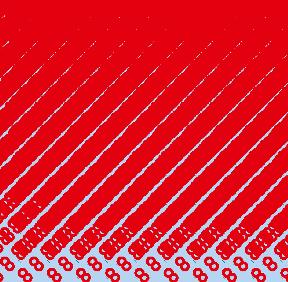
“Here, we document process improvements and efficiencies for those factors that we can control to show our payers that we are doing our part. We perform well on our quality metrics required by all payers and participate in various shared savings programs. We are also part of a statewide network, Ochsner Health Network, which is built on high quality, high performance, and high efficiency healthcare. We are an independent health system, yet we are part of a statewide effort to bring great healthcare to the people in Louisiana,” says Phyllis.
As a community partner, Phyllis expresses, “We have made a promise to the community to continue providing the highest quality of care to ensure the best outcomes and innovative healthcare solutions.”
Phyllis shares her future endeavors, stating, “ Expanding our Cancer Center to ensure cancer patients in our area receive the most comprehensive and innovative care in all stages of their treatment and recovery. Expand pharmacy services through an onsite retail pharmacy. Continue offering convenient COVID tests and vaccines and expanding to other necessary immunizations via our Drive-Thru Center. Moving further into the wellness arena by expanding existing or new facilities.”
She also says, “ We continue exploring new technologies that provide quality and efficient care, including naviga-

tional devices, wearable devices, telehealth, and expanded access to health information for patients and expand our healthcare capabilities to offsite services.”
We question Phyllis on what she thinks it takes to serve as a successful CEO. She says , “After over 20 years of serving in the role of CEO, various qualities come to mind as being necessary to be successful. Humility, honesty, empathy, extreme loyalty, timely responsiveness and follow through, and having a direct and open dialogue. I work hard on living and demonstrating these qualities, and I believe those that I serve would agree.”
Offering the jewels of wisdom for aspirants willing to venture into the healthcare sector, Phyllis shares, “Definitely say yes to healthcare! It has been an absolutely great and satisfying career choice for me. There are so many different facets to it, whether you have a clinical or nonclinical background. It is diverse, complicated, challenging, exciting, and rewarding all at the same time.”
“No day is the same. If you enjoy solving puzzles or problems, being creative, collaborating with peers and professionals, while knowing it is all centered around patient care, then this is the field for you,” she concludes


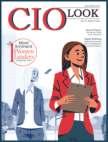
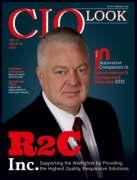
Anthony Chang Chief Intelligence and Innovation Ofcer (CIIO) Children's Hospital of Orange County (CHOC)

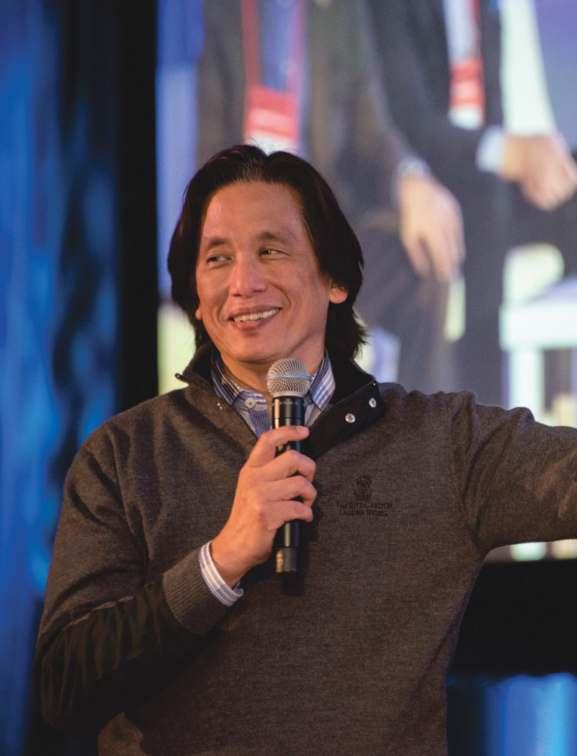


After decades of incremental progress, the healthcare technology sector has seen a recent exponential uptick in innovation. This shift can be traced to a number of different converging factors—including increased processing power, the widespread availability of datasets, and access to cloud computing among them—but look closer and one uniting factor ties them together: human champions that are pushing the industry forward. Artificial intelligence is the driving force behind some of the most powerful innovations in healthcare today, and there is no greater champion for artificial intelligence in healthcare than Dr. Anthony Chang.
Dr. Chang spent the first part of his career building an impressive resume as a pediatric cardiologist. His education included stops at Johns Hopkins, Georgetown, and Children's Hospital National Medical Center. He served as the medical director of several pediatric cardiac intensive care programs before accepting his current role as medical director of the Heart Institute at Children's Hospital of Orange County.
As his accomplishments in the realm of pediatric cardiology grew, Dr. Chang chose to follow several areas of interest and pursued additional degrees. He completed a Masters in Business Administration (MBA), and a Masters in Public Health (MPH) in Health Care Policy before seeking his Masters of Science (MS) in Biomedical Data Science with a subarea focus in artificial intelligence from Stanford School of Medicine. It was during this last educational pursuit that he found a passion that would fuel the next phase of his career.
As he writes in his book, Intelligence-Based Medicine: Artificial Intelligence and Human Cognition in Clinical Medicine and Healthcare (Elsevier), “It is estimated that about 80% of health-care data are unstructured.” In Dr. Chang's view, this data represents a vast store of valuable insights, research and information that are essentially lost to the broader medical community. Not only does this prevent clinicians like Dr. Chang from using this information to help guide their practice, but, more importantly, it deprives patients of valuable insights that might create better treatments.
With his newly-acquired expertise in data science, Dr. Chang realized that there was only one way to harness that data and information: by leveraging artificial intelligence. Armed with his varied experience in the worlds of medicine, business, leadership, and data science, Dr. Chang set to work bringing change to the healthcare industry that would allow artificial intelligence to flourish.
Dr. Chang recognized that he faced a number of obstacles to bring the worlds of AI and healthcare together. The healthcare industry can be notoriously slow to accept new technologies. Unlike Dr. Chang, most hospital leadership lacks the data-science background to understand cutting-edge technology like AI. And AI companies have difficulty navigating the labyrinthine world of healthcare. In order to bridge these two worlds in the pursuit of a better healthcare system, Dr. Chang founded MI10, a healthcare AI consulting firm.
In his work with MI10, Dr. Chang and his team of experts have been serving clients in a variety of realms including hospitals, AI companies, medical schools, and venture capitalists. His unique position at the nexus of these disparate worlds helps his clients to make targeted, informed decisions that can help them enter into a healthcare/AI partnership with the utmost confidence.
In addition to MI10's mission, Dr. Chang saw a pressing need to educate clinicians in the realm of AI. To this end, he founded the American Board of Artificial Intelligence in Medicine (ABAIM). This non-profit organization provides certification and classes in the realm of AI in medicine. In the future, Dr. Chang plans
to expand the organization's certification offerings to include board certification similar to the clinical informatics board certification.
As one of the most important evangelists of AI in medicine, Dr. Chang has also founded a series of conferences on the topic known as AIMed. This multimedia educational and networking platform is especially designed for supporting the entire ecosystem of AI in healthcare and medicine for clinicians and administrators, as well as data scientists and AI entrepreneurs and companies. With AIMed, he hosts close to 20 international meetings a year.
If experts in the realm of healthcare technology are correct, artificial intelligence will reshape the industry as we know it. Estimates place the value of the industry at over $50 billion by 2027. As technologies ranging from deep learning to blockchain to natural language processing take root and spread throughout the industry, we may soon find ourselves looking back on the pre-AI healthcare system and imagining that this advancement was inevitable. But history has shown again and again that great periods of innovations are ushered in by great visionaries. Dr. Chang is one such visionary, leveraging his vast array of accomplishments, connections, and experiences to bring about a new age of healthcare.
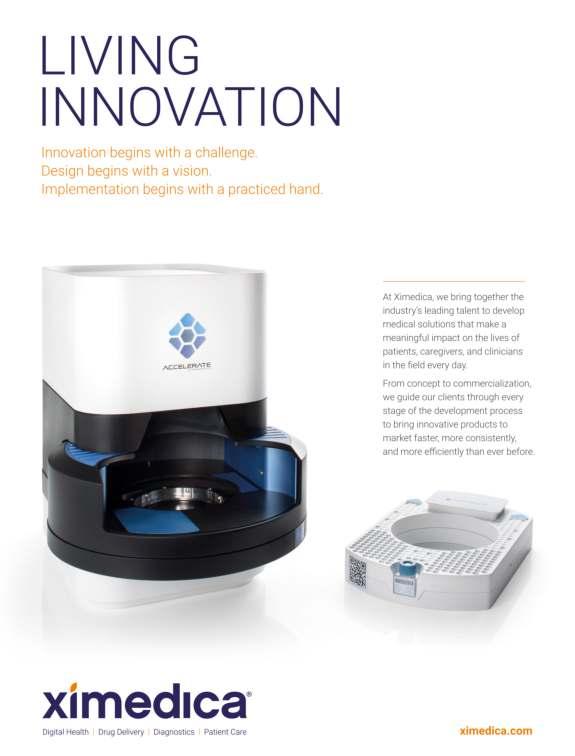

The world is finally waking up to the single-use plastic crisis. Over the last 10 years we have created more plastic than the whole of the last century combined. Half of the plastic we create is used just once, and then thrown away, taking 500 years to decompose. By 2050, the oceans are predicted to contain more plastic than fish. The plastic crisis is now too big for recycling alone to fix.
Global governments, businesses and consumers need to collaborate quickly to make impactful change before it’s too late. However, change is difficult when environmentally damaging habits have become so entrenched and often appear more financially appealing.
Technology is helping in this fight. Reusable water bottles are now widespread, and apps that help you locate drinking water refill stations are now emerging. At the same time, reusable coffee cup technology is addressing the half a trillion disposable coffee cups discarded every year. Such items are gaining increasing social currency with consumers, who are keen to display them as markers of their environmental conscience. This revolution is encouraging, but what about the products that people aren’t so willing to talk about?
100 billion menstrual products are thrown away globally every year. These are single-use, mostly made of plastic and cannot be recycled. You can choose not to have a coffee, you cannot choose not to have a period. Reusable options (e.g. menstrual cups, cloth pads) have been on the market for decades, yet the adoption rate has been slow. The primary barrier to entry is the fear of habit change.
So how do we bring about a revolution? The answer is keep it simple. And take time to consider consumer psychology. As humans, we abhor change. We are creatures drawn
towards the comfort of the known. By keeping habit change to a minimum, consumers are much more likely to adopt a new idea.
This was our philosophy at DAME when we created the world’s first reusable tampon applicator. We ensured the design was familiar and intuitive, so women did not have to compromise on their convenient, established rituals. We knew that hygiene could be a significant barrier to entry, so we worked with leading micro-biologists and medical engineers and used the best medical grade, anti-microbial materials on the market. As a result, the consumer only must rinse the applicator in cold water after use to keep it clean. Simple steps, minimal habit change.
However, it is challenging to tackle an issue that has such little awareness. Menstruation has historically been shrouded in shame, fear and discretion. It is not a topic openly talked about. This is a problem with feminine care as a whole: it is frequently dismissed and the women trying to address it are critically underfunded. In 2017 female founders got 2% of the $85 billion VC investment pot. About 8% of partners at the top British VC firms are women. According to Harvard Business Review, stereotypes about female entrepreneurs persist: women are overly cautious, shy away from growth, have insufficient resources and consequently their ventures underperform. Yet there is no performance data to support these stereotypes.
How are products used by women supposed to change in line with human and environmental needs, when they aren’t given appropriate recognition or have women involved in all stages of the process? Women need to be given more of a voice if we are to create meaningful change. The world of AI is already highlighting the need to diverse away from male, white,
Western coders if we are to avoid unconscious bias in the robots of tomorrow. Amazon had to abandon an AI recruitment tool that was discriminating against women, instead favoring prospects who mirrored Amazon’s existing male engineer workforce. At DAME women have been involved in every stage of the journey, not as a token gesture but as an absolute necessity.
However, our overarching business strategy goes beyond issues of inclusivity to incorporate a wider mission. DAME was founded on the belief that business can be used as a force for good. We use this core value to guide every decision we make in the business, bringing great clarity to our route forward. By communicating our genuine and authentic commitment to this mission, we hope that our message will quickly be picked up by those eager to join a movement for change. To date, we have seen this happen not only with our consumers and the press, but with employees. People are increasingly drawn to companies doing good. 75% of millennials would take a pay cut to work at a socially responsible company.

All this strengthens our resolve at DAME to continue to tackle critical problems that are not openly acknowledged, that are significantly underfunded, and that have historically been controlled by giant monopolies. Today we are focusing on menstrual products, but our vision is to revolutionize the entire bathroom. These are big mountains, but having strong guiding principles makes the navigation much easier.
-Words by Celia Pool Co-founder of DAMEFor more information visit wearedame.co
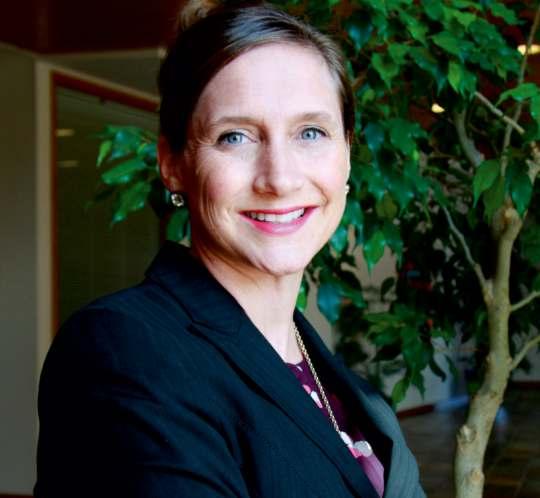

In the olden days, when Kings wanted to know what
ailed their populace, they walked among them in disguise. They listened to their struggles, hopes, and dreams. This helped them understand the demands of the citizens and form policies accordingly. On similar lines, Leslie Selby listens closely to the frontline workers in healthcare and drives change accordingly.
Leslie is a VP & Sales Executive at Epic, an organization working at the intersection of healthcare and IT to help the world get well, stay well, and help future generations be healthier.
Leslie listens to professionals in the healthcare industry from all verticals for insights that will help the organization cater to the clients better and helps the clients get the technology according to their needs.
Insights Success reached out to Leslie to listen to her two-decade journey in healthcare, what drives her, the impact she has left in the industry, and what she looks forward to next.
Below are the highlights of the interview:
Brief our audience about your journey as a business leader to your current position at Epic. What challenges have you had to overcome to reach where you are today?
My first role in healthcare, other than as a patient, was as a coordinator for a private duty home health agency. I worked with care providers and families to help patients live safely in their homes within their budgets. I was keenly aware of how critical it was for information to go between people and systems, but this was in the mid to late '90s. Interoperability and integration weren't words that we used, and there was no single integrated system that could keep all the patient information together so that ED, inpatient, ambulatory, home health, and the patient could share the same information.
Today I talk with customers and prospective customers about exactly that-what's possible, how it's being done at leading sites, and how they can achieve their goals within their budget. As Epic has expanded, I've helped with many sales in new countries. The learning curve for all of us was and continues to be significant, but the challenges are mostly the same wherever we go. Organizations need integration, which means one
single system wherever possible so that they can reduce their costs and take better care of patients. A big part of my role is to help them get what they already know they need.
Tell us something more about your company and its mission and vision.
Epic is a privately held healthcare software company that provides electronic medical records for large and well-respected care organizations such as Mayo Clinic, Johns Hopkins, and Cambridge University Hospitals, UK. Our focus is improving healthcare so that people can get well and stay well and future generations can be healthier. Our software helps providers save lives, improve community-wide health, and reduce healthcare costs by eliminating waste and allowing staff to work more efficiently. With broad adoption among academic medical centers and teaching hospitals, our software is instrumental in training the next generation of clinicians and helping researchers advance medical knowledge.
Enlighten us on how you have impacted healthcare through your expertise in the market.
Most of what I've learned about healthcare has been through the lens of the people on the front lines serving
I've listened to many thousands of caregivers talk about their challenges, hopes, and dreams. My role is to listen, understand, and drive change
patients and the executives who support those individuals. I am certified in our ambulatory EMR, and although I haven't led an install for many years, I greatly value the time I spent sitting shoulder to shoulder with doctors, nurses, and other staff during go-lives.
I've listened to many thousands of caregivers talk about their challenges, hopes, and dreams. My role is to listen, understand, and drive change. That could come in the form of enhancement ideas that I share with our developers, updates to our service methodologies, or new ways to use the system to effect change.
Describe in detail the values and the work culture that drives your organization.
Teaching the culture is a core expectation for leaders at Epic. We review key concepts regularly and post our principles and values (we call them the 10 commandments) throughout the campus. Examples include business principles such as “Do not go public” and “Do not acquire or be acquired.” We are and will remain employee-owned and privately held so that our focus remains on our software and customers rather than outside investors. Others are specific to how we work with customers, such as “Keep commitments” and “Expectations must equal reality.” Keeping promises has been a major factor in our #1 ratings in competitive comparisons by groups such as KLAS Research for many years.
In our day-to-day work, we are a flat company without overly formal management structures. Staff are on a first-name basis, and everyone at the company can go to whoever is needed to solve a problem or move an idea forward. We applaud assertiveness and effective badgering.
What, according to you, could be the next significant change in the healthcare sector? How is your company preparing to be a part of that change?
Twenty years ago, everyone was talking about the what and how in healthcare software. The industry is finally shifting in a major way toward the “why.” Organizations complete the hard work of implementing EMRs, training staff, and gathering data because that's what is essential for the magic to happen—innovation and discoveries that improve health within communities and countries.
Cosmos, Epic's national research repository, has the most potential to change healthcare in the coming years. Cosmos consolidates patient data from multiple Epic customers into a single repository that is accessible to researchers and other staff at organizations that contribute data. This provides a larger data pool than researchers typically have access to and allows observational studies that get new knowledge to the point of care quickly. Cosmos provides a HIPAA-defined limited data set for 150+ million patients and could grow to 200+ million as more customers join.
What Cosmos really highlights is the need for collaboration to move healthcare forward. One of my favorite quotes from Carl Dvorak, Epic's President, is “we cannot each individually be the best at everything.” Cosmos wouldn't be possible without multiple organizations coming together. Take a look at www.epicresearch.org to see the great work this collaborative community is doing. They are changing the world.
Where do you envision yourself to be in the long run, and what are your future goals for Epic?
Wow, 20+ years feels like a long run already! I'm a big believer in accountability, and I feel that because Epic has tools and data that can revolutionize healthcare, we have a responsibility to get them to the point of care to help as many patients and providers as possible.
In the coming years, I look forward to meeting and advising healthcare leaders around the world on systems that help cure diseases faster, save peoples' lives, and bring back joy and smiles for caregivers. As a patient and a mom, I'm excited about promoting new capabilities to help people take better care of themselves and their families.
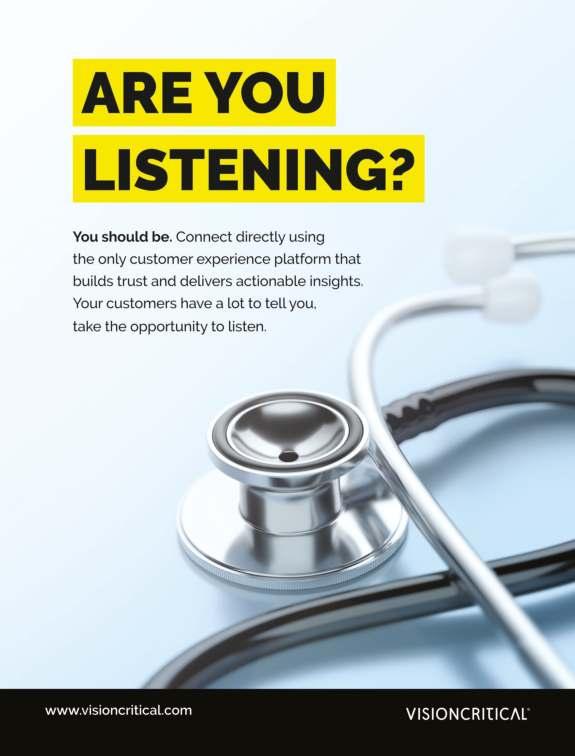
Access to quality, affordable healthcare is the
most essential need of citizens in any country. It was the zeal to address this need that fueled Michael Showalter 's passion to become part of the solution to provide access to quality, affordable healthcare to everyone in the United States.
Michael's passion is also driven by three personal life experiences: As he was growing up, Michael's dad was diagnosed with multiple sclerosis. Consequently, his employer denied his father’s promotion because they didn't recognize that a person can have MS and live a full, productive life. Then, early in his own career, Michael turned down a job opportunity – the new
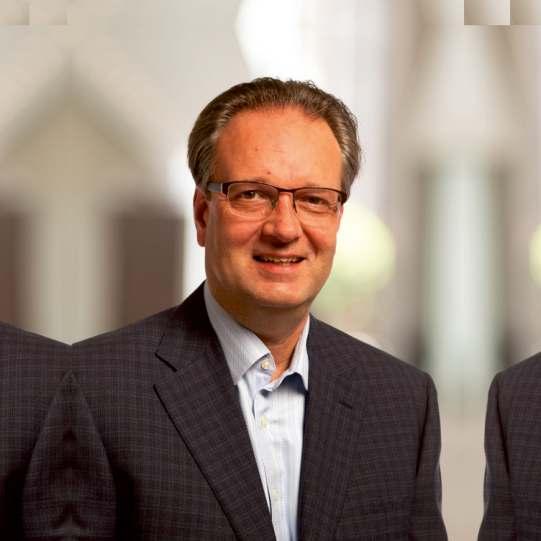
employer wouldn't offer health coverage because his wife was being treated for cancer.
Later on, Michael became member of a multi-national healthcare think tank. At almost every meeting, representatives from other countries would ask those who were from the U.S. why the wealthiest nation on Earth couldn't provide healthcare for all of its citizens (which every other member country of the think tank had figured out). It made Michael realize that America's healthcare position at the time just wasn't defensible. Solving the issue of access to quality, affordable care for everyone drives Michael even more today in light of the global health crisis we know as COVID-19.
As CEO , Michael leads Health e(fx) with a passion for serving customers. An accomplished industry veteran, Michael is recognized for his senior leadership experience and successful track record for growth in both healthcare startups and large organizations. Internally, Michael promotes a customer-centric culture of respect, responsibility, focus and working together. His diverse and challenging experiences have given Michael a broad, holistic view of customer needs within the healthcare industry. As a change agent, he has a proven track record of creating growth for companies in the highly competitive and dynamic healthcare space.
Reforming a system as complicated as healthcare can actually add to the system's complexity. Although employers provide healthcare coverage for their employees, Michael understands that the average employer doesn't want to be an expert on the intricacies of healthcare or how to transform it. That's where Health e(fx) plays an important role. The
purpose of Health e(fx) is to serve its customers by transforming healthcare one solution, one dataset and one life at a time.
Health e(fx) expertise can solve employers' complex health reform obligations. For example, the new Biden Administration will likely seek to enforce stricter employer compliance of Affordable Care Act (ACA) reporting regulations to ensure that private sector companies are doing their part for health reform. On the private sector side, each employer has unique, and oftentimes complicated, needs in meeting those compliance regulations. Health e(fx) thrives on that complexity. It's at this intersection between government expectation and private sector need for support to fulfill obligations where Health e(fx) impacts health reform.
Health reform and compliance is Health e(fx)’s specialty. It's how it has become the largest ACA
"Be brave, be authentic, be yourself. Drive the change that's needed, which means putting change first and yourself last."
Leading with a Passion for Serving Customers
software solution provider, serving strategic partners, some of the nation's largest employers and over 22 million individuals. Through active data management, Health e(fx) helps employers catch potential compliance risks early, deliver timely federal and state reporting, and uncover unique workforce insights.
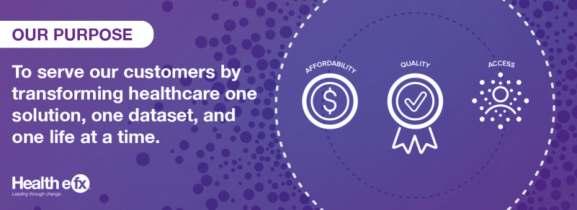
The support Health e(fx) provides to employers and their representatives, as well as to strategic partners, is rooted in its passion for serving its client's best interests. In addition to Health e(fx)'s core business, Michael believes that, as a successful organization, Health e(fx) has a duty to be a good citizen in the community in which its employees live and work. All of its employees support philanthropic organizations. In 2020 alone, it helped 23 organizations that provide meals and homeless shelters, support for students in school, as well as resources for education on building multicultural relationships.
Michael is proud of the role Health e(fx) plays to help reform healthcare and make its communities better places to live, work and play. Yet, the need for strong leaders is great, and many more must come forward. Afterall, left on its own, any system, organization, department or even individual will lean toward homeostasis. Everyone wants to navigate toward comfort and stay with what's familiar. One of the most important qualities needed in future leaders is the ability to question the status quo and transform it. And that will create disruption, which is frequently unwelcome. Therefore, to future leaders, Michael says,
"Be brave, be authentic, be yourself. Drive the change that's needed, which means putting change first and yourself last." Michael also advises future leaders to "be grateful that you have the opportunity to lead. It's an honor. For a short time in your life, you'll get the opportunity to lead an organization. Lead with humility and remember that leadership is a role, not an identity.”
Michael applauds every healthcare worker whom he has ever encountered. He owes his life to a surgeon. His dad's life was saved by many doctors. His mom and wife were both saved from cancer by many healthcare workers.
The actual determinants of physical, mental and emotional health are driven by paying attention to what our bodies and minds try to tell us. Michael says that, "We each need to find a way to listen to ourselves and livein harmony with what we hear. We need to learn to live in flow instead of turning to clinicians and expecting them to hand over a means for each of us to cope with our lifestyle choices. To achieve flow requires that each of us becomes quiet and listens to ourselves. That we treat others as we'd treat ourselves. And that we respect what each person needs and then honor that."
Michael further adds that, "While each of us needs to take responsibility for our own health journey, we can't do it alone. Employers must support the people who work for them by providing quality, affordable healthcare coverage, sponsoring total wellbeing education and activities, and playing an active role in health reform initiatives. Only then we will have a truly healthy society."

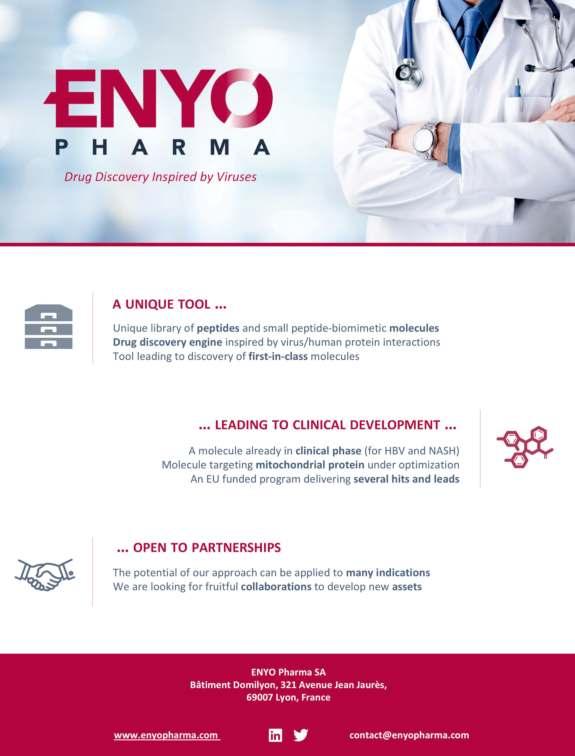

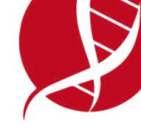
The importance of sound health cannot be mentioned enough. Especially the ongoing pandemic has highlighted the need of good health of the people. Good health and well-being is one of the most important sustainable development goals. Without good health, people cannot function at their full productivity and this is certainly not good from economic point of view as well. Taking this into consideration, many leaders in healthcare have come forward to bring a significant change in the industry by leveraging technology and innovation. Among those leaders, one such passionate leader is Dr. Tania MartinMercado
Currently, Dr. Tania is serving as the CEO of the Phronetik, Inc . Phronetik delivers high-quality sample processing, extraction, data analysis and interpretation quickly and securely in order to advance scientific discovery and help guide every-day medical decisions throughout a patient's life.
In an interview with CIOLook, Dr. Tania shares her journey and about her contribution to improve healthcare through Phronetik.
Below are the Highlights of the Interview:
Give us a brief overview of your position at your company, and your journey since inception. Phronetik is a rapidly growing leader advancing precision medicine by leveraging biotechnology, bioinformatics, and artificial intelligence to improve
diagnosis, treatment, monitoring and advance scientific research. A few of our core competencies include genomic testing, sequencing services, and technology services.
As a business leader, what is your thought on the changes in the Medical Industry and in R&D after the pandemic?
The pandemic has provided significant opportunity for innovation and transformation in clinical research and patient care. Healthcare providers are seeking new, improved ways to interact with their patients and demanding digital enhancements from their EHR vendors to meet this need. The healthcare delivery cycle has changed and is leaning toward more interoperability and less siloed information. This requires a cultural change within healthcare, more than a technical one.
Research and Development, life science, and pharmaceutical organizations have an increased demand for genomic information as the industry advances personalized therapeutics and precision medicine. These initiatives require strategic planning and focused investment. The pandemic has only accelerated these plans.
What is your opinion on the advancements of Higher Education to improve the offerings with newer medicinal technological developments, especially when it comes to building a population of healthy individuals?
Advancements in higher education should include a focus on digitalization, data, and analytics, and how these apply to patient care in a practical manner.
Focusing on healthy behaviors to prevent disease rather than reactive measures to treat disease should be a core component of learning. Knowledge of social determinants of health, equitable care, and a vision and path to treating the whole patient is imperative for the next generation of health and medical professionals.
Which is the best way to meet today’s and tomorrow's challenges with your company’s exceptional product and services for urgent needs coming our way?
Phronetik enables organizations to better capture, interpret, and present data from several sources –genomic, biological, structured, unstructured – in order

to advance scientific research. The challenge in life science exists in the large amount of data generated from the pharmaceutical, biotechnology, medical devices, and genomics, and how to leverage this data for improved healthcare, therapeutic, and business outcomes.
As an established healthcare leader, what would be your advice to the budding healthcare leaders aspiring to venture into the medical industry?
My advice is to find an area you are passionate about, and dive right in. Learn all you can. Hopefully, the interest in the field stems from a desire to advance healthcare and research. As such, an understanding of public health, access to care, and disease prevention should be at the forefront of the journey.

In what ways do you or your company contributed to the community? If given a chance, what change would you bring in creating a "Community of High Research? We would like to see a concentrated effort to diversify clinical trials, in partnership with public health professionals, health care providers, and clinical researchers. This effort requires understanding of the historic record of medical experimentation on the most vulnerable and underrepresented communities without consent. There is a well-earned history of distrust among marginalized communities on the topics of clinical research.
One way we tackle this issue is by outwardly advocating within marginalized communities, educating the population, and fostering open and transparent communication. Representation is of utmost importance in working toward trust between marginalized communities and researchers.
How do you envision on sustaining your company’s competency in a cutthroat and volatile world of Healthcare?
We do not feel healthcare is cutthroat. There is room for everyone and enough work for all to contribute. Phronetik will continue to promote diversity in clinical trials, improved access to care, and strong data governance.
Phronetik offers competencies in biotechnology, bioinformatics, data science, artificial intelligence and information systems to advance precision medicine and positively impact scientific research.

